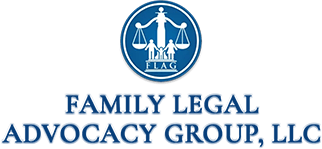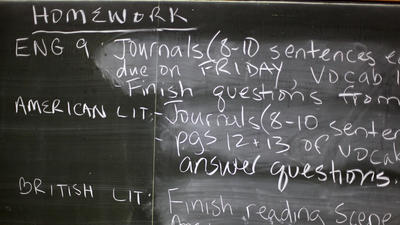Gov. Larry Hogan is refusing to endorse the Maryland school board’s plan for helping low-performing schools, saying state board members were hamstrung by a new law limiting what the plan can include.
The General Assembly passed legislation this year that limits ways the state can try to reform its lowest-performing schools — those in the bottom 5 percent. The Republican governor vetoed that bill, but the Democratic-controlled legislature overrode him.
In a letter sent this week to U.S. Education Secretary Betsy DeVos, Hogan wrote that the state board could not craft a sufficient plan under the “impossible circumstances” imposed by the state law. All states must submit plans for improving low-performing schools to comply with the federal Every Student Succeeds Act.
Hogan’s signature is not required for state education officials to send the plan to the federal government for review. They still intend to submit the plan Monday, a spokesman for the Maryland State Department of Education said.
The Protect Our Schools Act passed by the Assembly this year prohibits the state school board from requiring test scores to count for more than 65 percent of a school’s performance ranking. And it would prevent the state from taking several actions to improve those schools, including converting them to charter schools, bringing in private management, giving the students vouchers to attend private schools or putting the schools into a special statewide “recovery” school district.
In a letter to state school board President Andy Smarick, Hogan wrote that the legislation resulted in a plan that will preserve “the status quo in failing schools.”
But some education advocates were quick to criticize the governor for not backing the school board’s plan.
By not supporting the plan, Hogan is disregarding months of feedback from parents and nonprofit organizations, said Sean Johnson, legislative director of the Maryland State Education Association, the union for public school teachers.
“I hope the strong support from all of those stakeholders makes clear that Maryland is really committed to meaningful and positive education reforms — even if it’s not the privatization and test-and-punish approach that I guess Larry Hogan would rather champion,” Johnson said.
Some state school board members, nearly all of whom were appointed by Hogan, have chafed at the legislation and supported Hogan’s veto. Some members had suggested using more radical measures to reform failing schools, including turning them over to charter school operators.
Smarick said although members disagreed with the Protect Our Schools Act, they “had to follow the letter of the state and federal law. That was our job.”
Senate Minority Leader J.B. Jennings said the state law unfairly limits options for improving struggling schools.
“The Democratic leadership pushed through a horrible piece of legislation that, in my mind, didn’t put kids first. It put special interests first,” said Jennings, a Republican who represents parts of Harford and Baltimore counties.
The U.S. Department of Education reviews each state’s plan for improving struggling schools and can recommend changes. Though Hogan’s signature is not required on the document, its absence will signal to federal officials that he doesn’t support it.
Gov. Larry Hogan visited Baltimore Collegiate School for Boys to announce his veto of legislation that would limit some school reforms. (Baltimore Sun video)
“I worry that he’s, in a sense, encouraging Betsy DeVos to reject the plan, which puts $250 million worth of federal funding at risk,” said Del. Eric Luedtke, a lead sponsor of the Protect Our Schools Act. He’s also a former public school teacher.
DeVos has been a champion of offering families alternatives to traditional neighborhood public schools, such as charter schools and vouchers that allow students to attend private schools.
The federal government so far has not rejected any state plans, but has suggested changes to some


